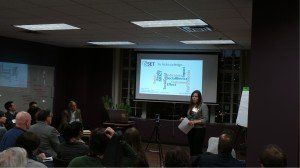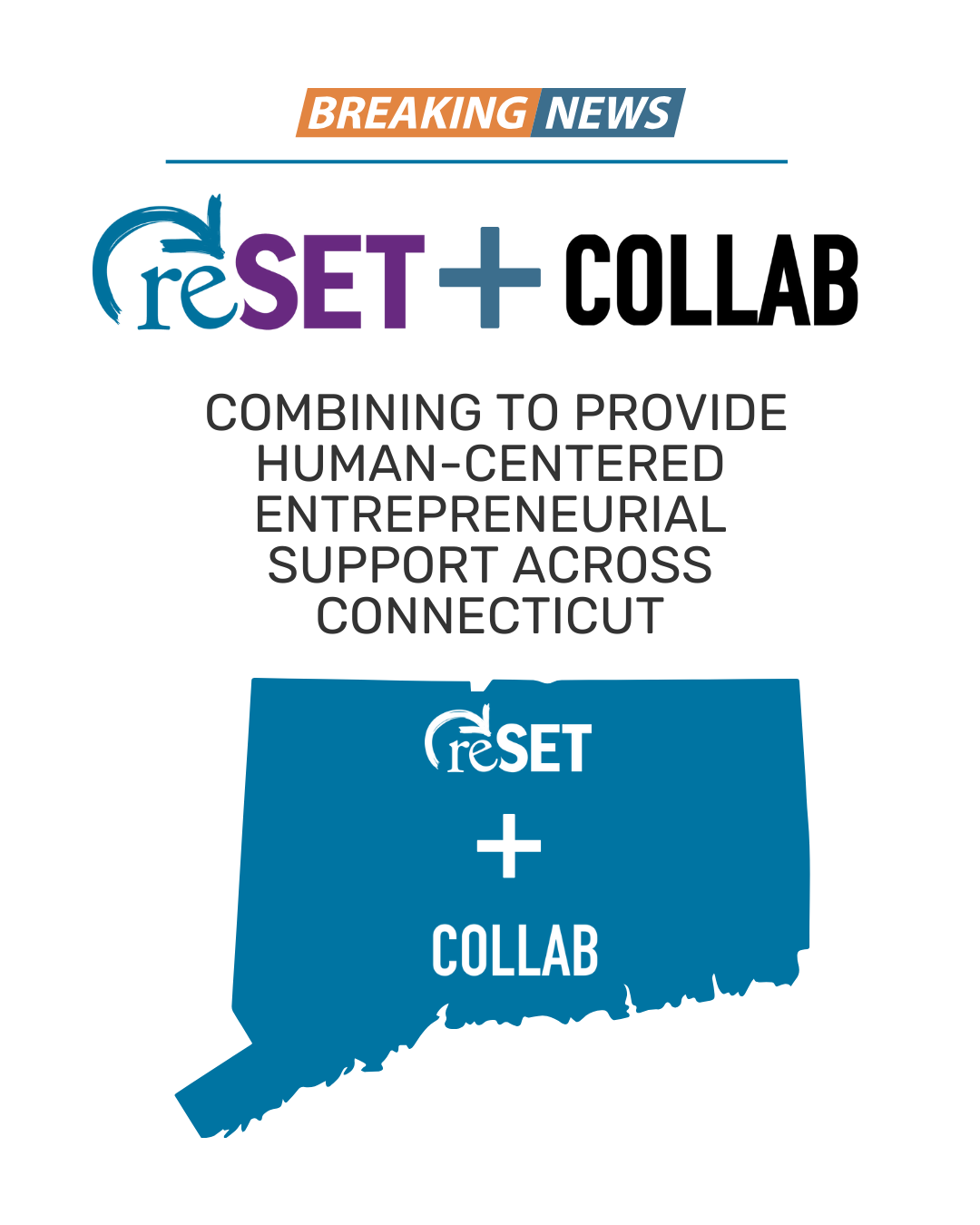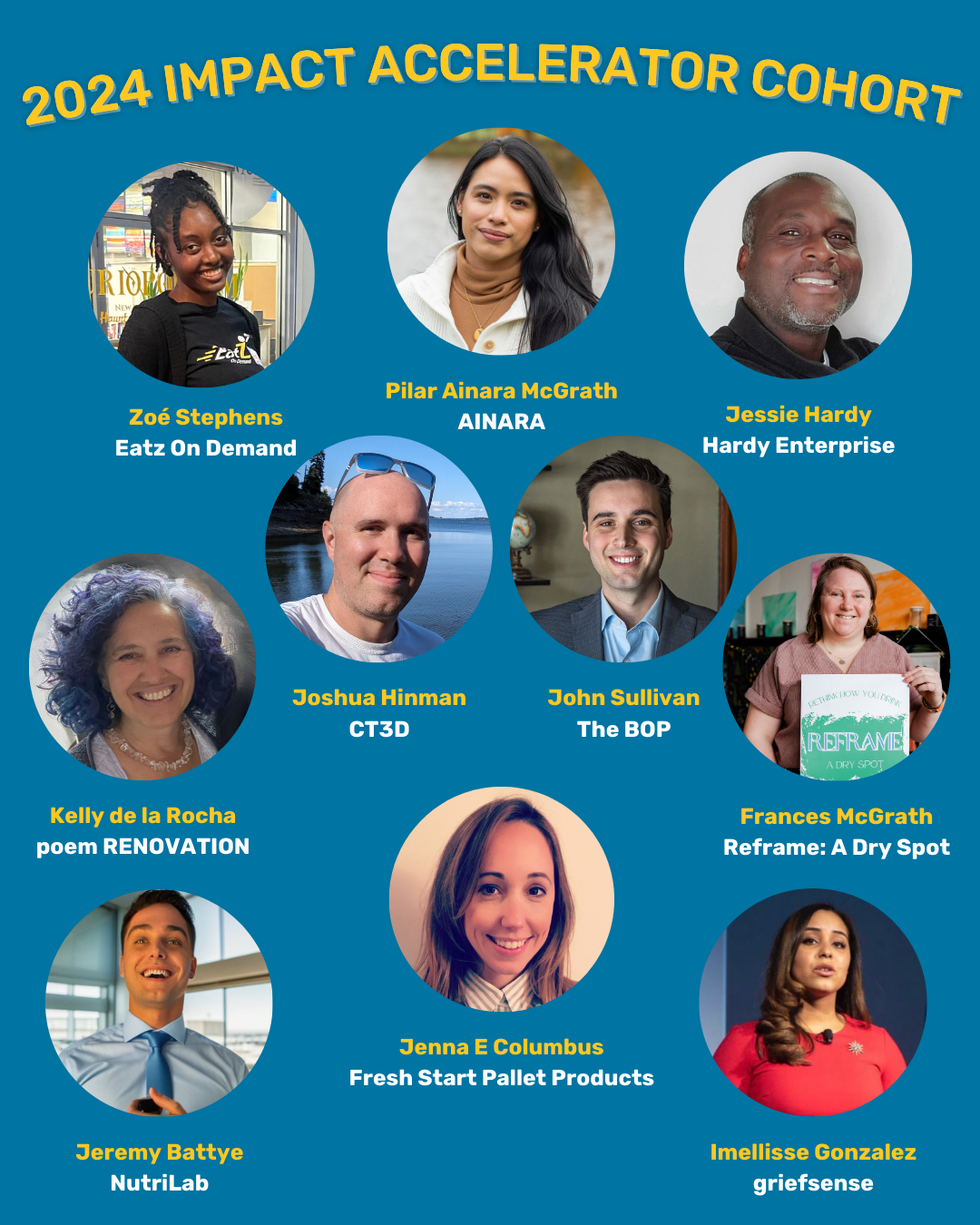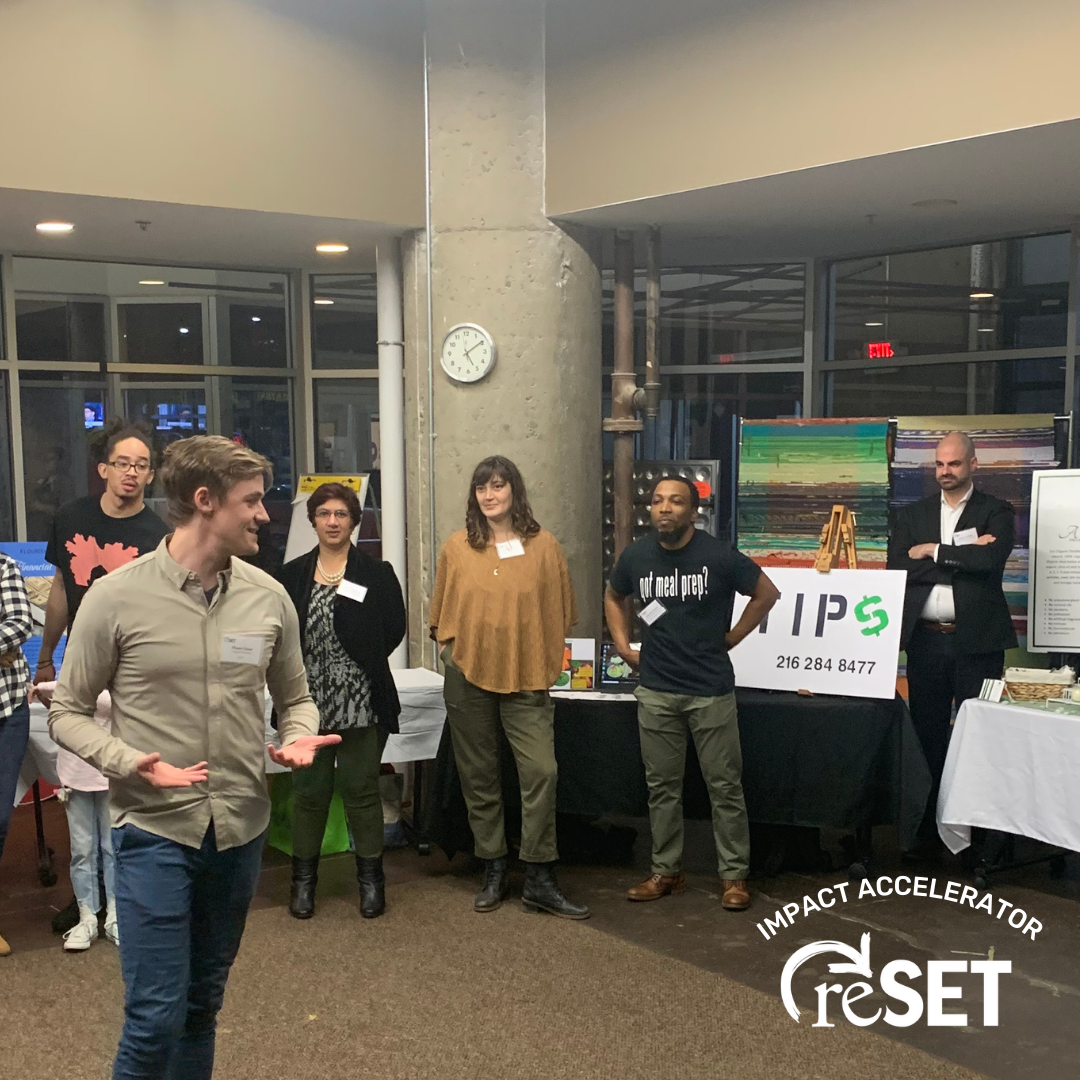We all know that important conversations require the right people to be in the room ― visionaries who can lead change, skilled organizational representatives who share insights, and community actionaries who are dissatisfied with the status quo. It is important to have the right audience too; those who are looking for new opportunities for change, and want to know how their role in the community can contribute to bringing that change to fruition.
On Wednesday, January 29th those were the people who were in the room, gathered at reSET’s Community Space for a workshop on Impact thinking.
Defining Impact Thinking and its correlating factors in terms of how it applies to our work, our communities, and our lives continues to be a tremendous undertaking. The idea of Impact Thinking requires a multifaceted approach, which is why reSET convened a series of entrepreneurial guest speakers from CT’s social service sector to describe their experiences and provide real world applications of Impact Thinking.
The program was led off by Brian O’Shaughnessy, founder of Community Impact Strategies, started with a working definition of impact as a data and measurement concept centered on financial efficiency and results. Interest in impact is growing due to financial concerns – there is less revenue available while the need is greater than ever before. Government spending for human services has grown dramatically (from 7% of GDP in the FDR administration to 45% current day).
O’Shaughnessy shared the view that impact is being created in four arenas: social enterprise, philanthropy, impact and social services, and preventive social services, and spoke to each one. O’Shaughnessy argued that development of shared data standards is essential. Using examples drawn directly from the wake of the Great Depression, he described the introduction of sweeping new regulation of the securities markets and the introduction of GAAP (generally accepted accounting principles), shared data standards in use to this day.
Chris Brechlin, founder of the social enterprise Blueprint for a Dream, develops blueprints which provide a single, user-friendly tool to provide guidance for planning, tell the story of community need, and highlight the potential for impact. His philosophy of using data for impact encompasses feedback loops ― Information that drives continuous improvement; a hyper-local perspective (to census tract data); detailed understanding of the population served; and engagement, which is essential for buy-in among partners.
Brechlin went on to demonstrate his Blueprint for Housing recently completed for the Windham Region Ten Year Plan to End Homelessness, and its links to the Impact Thinking process. Brechlin provided participants with a useful list of helpful terms and definitions, and resources for each phase of the Impact Thinking process.
Finally, Rick Brush, Founder of Collective Health LLC, whose topic was Impact Thinking for Better Health and Financial Outcomes led participants through a discussion of what matters to health; including education, relationships and community. He then went on to review what drives health care spending ($2.9 trillion in the United States), to arrive at the key question: how can we make a great impact (and investment!) in health?
Brush discussed what’s needed for health care investing: known causes; evidence-based interventions; net savings potential and method; payers that agree to share or reinvest savings; ROI.IRR, acceptable investor risk-return and payback period. He then discussed potential applications for health care investing, notably preventable and manageable chronic disease, “superusers” of hospital emergency departments and hospital readmissions. He finished with a glimpse of his social enterprise, HICCUp, which plans to launch a five year competition in communities with populations of 100,000 or more to invest in system-wide efforts to general sustainable health and financial impact.
Participants ended the evening by joining with speakers in breakout sessions to dive deeper into their topics and walk through the Impact Thinking process.
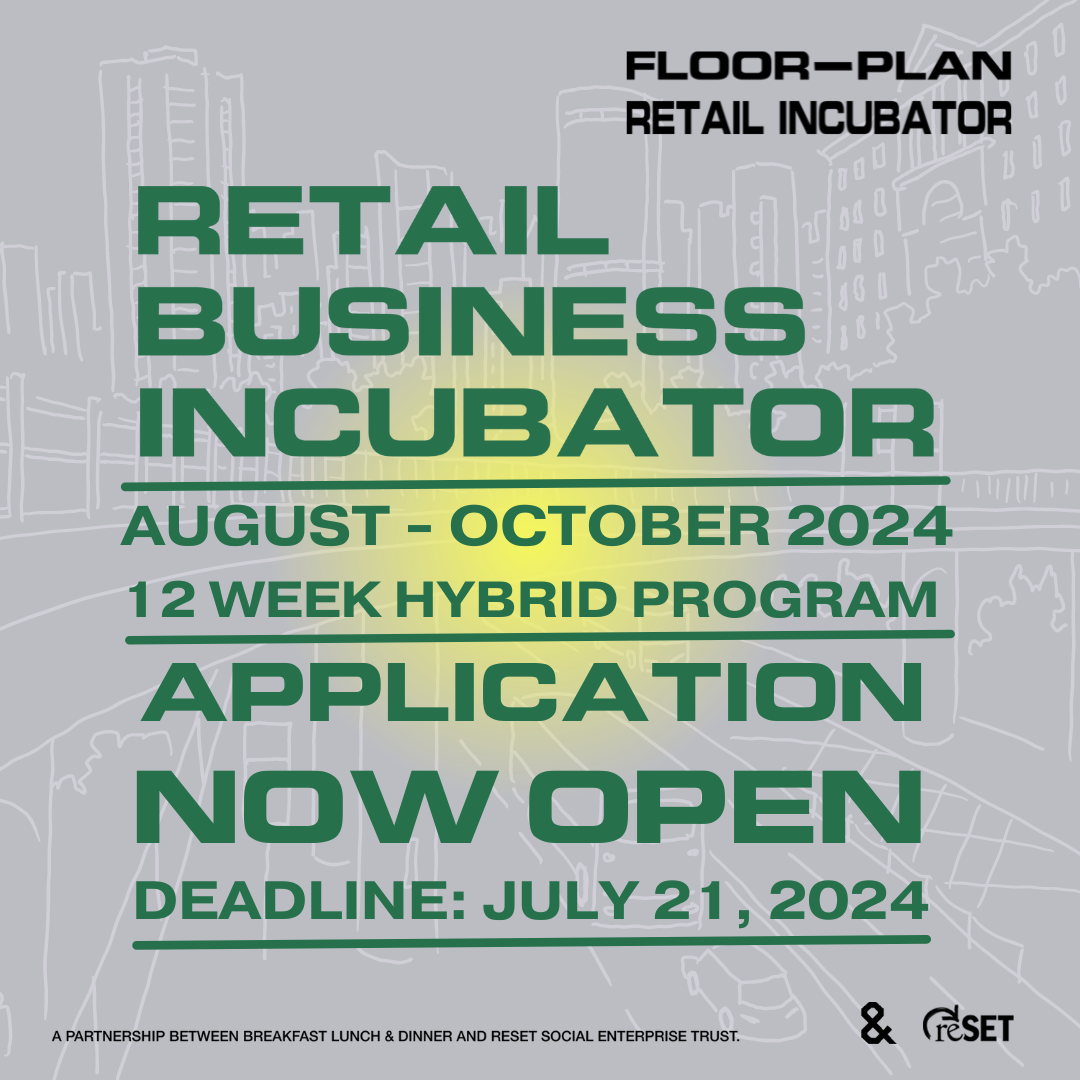
Address:
1429 Park Street, Suite 114, Hartford, CT 06106
Phone:
(860) 560-9120
All Rights Reserved | reSET
Social Enterprise Trust, Inc is a not-for-profit organization recognized as tax-exempt under Internal Revenue Code section 501 (c)(3). .

